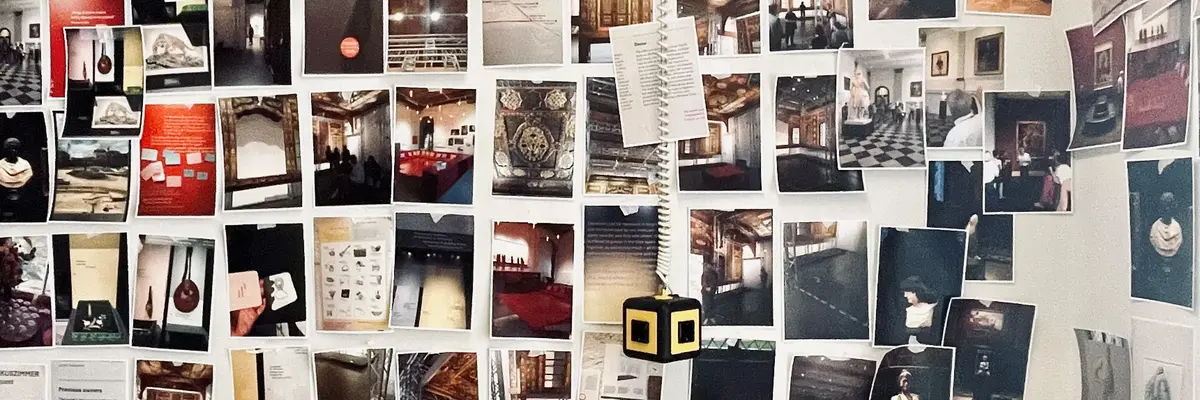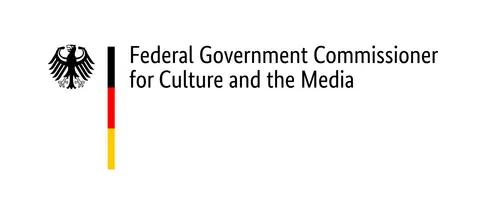
Transcultural Academy 2024
Transcultural Academy „Unfinished Publics: Art and Democracy“ 2024
Research Department of Staatliche Kunstsammlungen Dresden (SKD)
May – November 2024 at Japanisches Palais
The promise of democracy is strongly debated in our troubled times as a necessity for the freedom of art and research. The defence of democracy, central to many debates, protests and movements globally, also invokes the responsibility of the museum, exhibition-making, curatorial knowledge and the means of art. Art and culture have always been at the core for the making of society from below, as much as it also has been instrumental, if not instrumentalized, for crafting statehood.
The Transcultural Academy “Unfinished Publics: Art and Democracy” 2024 aims at raising consciousness for the fluidity, heterogeneity and fragility of democracy. Mobilizing the objects of Staatliche Kunstsammlungen Dresden (State Art Collection) as interlocutors, witnesses and repositories of invisible knowledge, the Academy asks:
Whose democracy? What can the means of art do for living the processes of democratization? Against what? Which different models of democracy become visible—or remain invisible — in the art collections of a 500-years old European museum complex, for example, emerging in the spirit of the Haitian Revolution defeating the coloniality of law? What are forms and fashions of the French Revolution? Which alternatives to western models of democracy in recent history do the collections hold? For example, the post-1989 world has seen a “democracy unrealized” (Okwui Enwezor) and a “democracy promotion” (Radha D’Souza) on the grounds of a market-driven, neoliberal economy. Yet, where did all the ideas, images, and proposals of the discussions of the Round Tables go, an basic-democratic forum during the last months’ of the existence of the German Democratic Republic (1989/1990) for negotiating a post-socialist democracy? Could, possibly, the experiences made in a one-party state instigate an imaginary of democracy more real than lived? Can we see some of these alternatives to the Western model in the collections objects of Dresden? More pressing in the current climate, fascist politics, post-truth and ethno-nationalism threaten painfully the basic principles of democracy. What role does the museum play as a site of art, research, and knowledge processes – with its materialities, histories, futures, technologies, value categories, traditions, communities – in these debates? How can art, and an academy contribute to live and rehearse democracy as a network of practise fostering the making of publics?
Various elements of the Transcultural Academy focus on exploring the visibility and invisibility of images, spaces, codifications, or allegories related to democratic processes found within the collections. Participants engage in conversations with scholars and mentors to explore selected works. Together, we interrogate chosen objects for their contemporary societal relevance in democracy debates, emphasizing the importance of historical contexts.
An equally crucial aspect of the Academy involves developing curatorial methods to make research processes, even unfinished, publicly visible. Participants experiment with various ways of making research results public, drawing inspiration from different museum practices. This includes publishing institutional decisions, narratives about artworks articulated by the outreach department, or engaging in political, media, and art-related debates. The goal is to raise awareness of different ways research can be made public, regardless of a defined target audience.
Participants:
Following an openc call, 13 transdisciplinary and international participants were selected for the Transcultural Academy 2024. In workshops, discussions, tours of the collections, and an Assembly School, they explore the core questions of the Academy. Artist-researcher Lizza May David and independent curator and editor Joanna Warsza accompany the process, while SKD experts are available for project-specific dialogues. The program runs online and in Dresden from May to November 2024.
Formats:
Various elements of the Transcultural Academy focus on exploring the visibility and invisibility of images, spaces, codifications, or allegories related to democratic processes within the SKD collections. Participants research selected artworks, questioning their contemporary social relevance in democratic debates, always considering the importance of historical contexts.
An equally important aspect of the Academy is developing curatorial methods to make research processes, even if not yet completed, publicly visible. Various possibilities for publication are experimentally explored, inspired by practices in the museum.
In the Assembly School from October 21-25, 2024, resulting artworks and research findings will be publicly presented, accompanied by discussion rounds.
Schedules
Concept: Doreen Mende with Anna-Lisa Reith
Advisory board: Gürsoy Doğtaş, Lizza May David, Joanna Warsza
Coordination: Anna-Lisa Reith
Design: Patricia Reed
Funded by:
engl. Förderer
engl. Förderer

